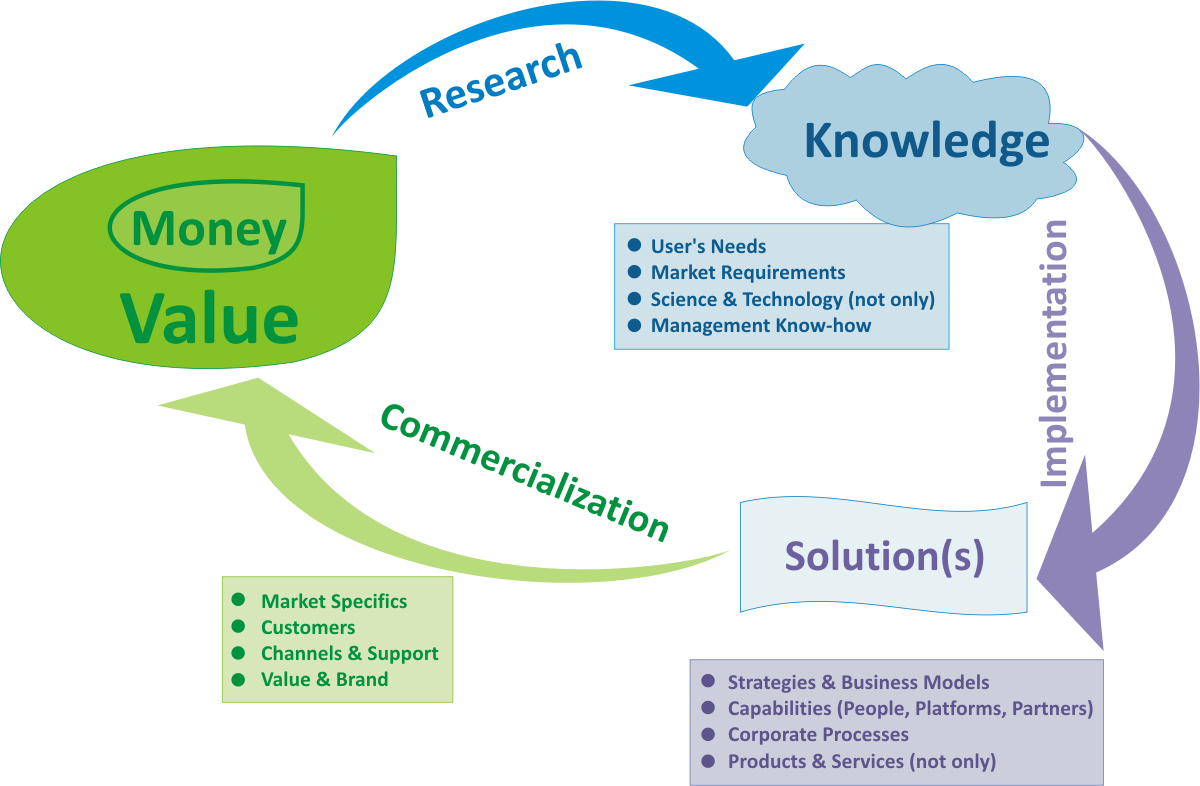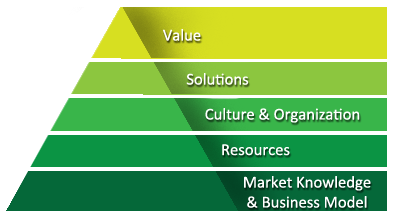Corporate-level business innovation comprises the entire portfolio of innovation activities undertaken by a firm in its drive to achieve business success.
A company’s success is predicated on several major factors, prominent among which are: (1)
Business innovation comprises the processes by which a company pursues new ways to grow its value and enhance its competitive position in the market. This is done by attracting customers with better products and services, as well as by surprising the competition with more effective and efficient internal and external processes.


To be successful, a business innovation must go through the following stages: (A) Ideation to accumulate the ideas and knowledge necessary for progress; (B) Implementation to develop the solutions leading to success (e.g. better business strategies, higher capabilities, better products, services and corporate processes); and (C) Exploitation to reap the economic or social benefits either through internal application or external commercialization of the innovative solutions developed.
Corporate-level business innovation must address comprehensively all the major domains of competitive differentiation, as illustrated in the Value-add Corporate Innovation Management framework above:
Having an appropriate organization culture is very critical because without it not much can be achieved even if the company has good individual resources. Likewise, pursuing innovation with a metrics-based methodology is of paramount importance because ne cannot understand and manage anything without measuring it. And, let’s not forget that metrics drive behaviour!